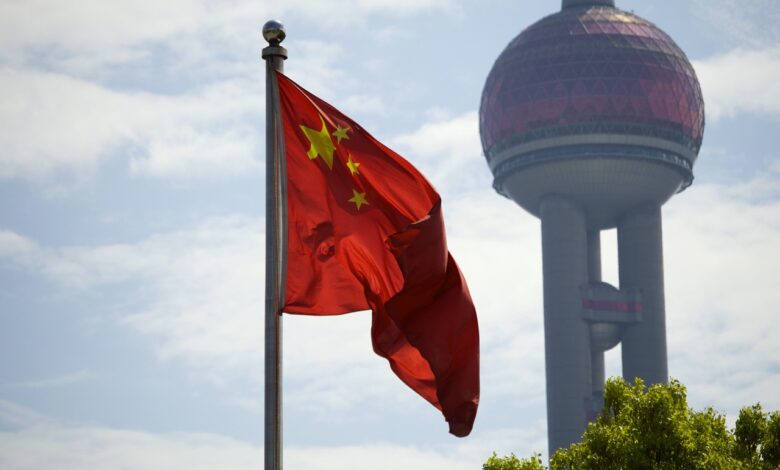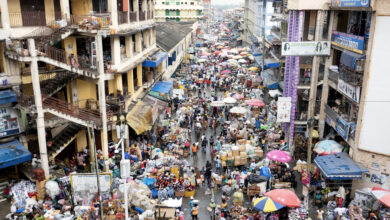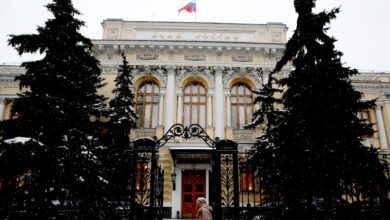China’s GDP is expected to grow by 8% in 2021, but property and viral risks loom.

BEIJING: According to an AFP survey of economists, China’s economy would grow at its greatest rate in ten years in 2021, although its impressive recovery from the Covid-19 outbreak is threatened by Omicron and a slowdown in the housing industry.
The 8% growth rate would be significantly over the government’s aim of more than 6%, and it follows a good start to the year in which the country led the global economic recovery thanks to a “zero-Covid” policy.
China’s exports increased nearly 30% last year because to strong global demand as nations reopened after epidemic lockdowns, supporting the country’s lagging economy. However, the country’s recovery in the second half of 2021 was hampered by a series of breakouts, which prompted officials to re-impose severe containment restrictions, as well as power disruptions caused by an emissions-reduction effort, supply chain issues, and rising energy costs.
While the prediction represents a strong yearly increase, up from 2.3 percent in 2020, these difficulties slowed manufacturing activity and contributed to the closure of enterprises.
They were exacerbated by a crackdown on debt in the real estate industry, which represents for a sizable portion of the economy.
“Key causes… included the impact of power shortages, a slowdown in the home building industry, and lowering retail sales,” said Rajiv Biswas, Asia-Pacific senior economist at IHS Markit.
Analysts predict a 3.5 percent year-on-year increase in the fourth quarter, down from 4.9 percent in the preceding three months and 7.9 percent from April to June.
And, according to Biswas, headwinds from the construction industry, as well as the impact of Covid policies on consumer spending, would likely represent a “substantial drag” on GDP this year.
As it prepares to host the Winter Olympics next month, Beijing has been on high alert, with its zero-Covid policy driving lockdowns, border restrictions, and extended quarantines.
“The current coronavirus comeback poses significant downside risks to China’s economic recovery… in light of the government’s zero-tolerance attitude,” said Raymond Yeung, chief economist for Greater China at ANZ Research.
Backlogs and delays
Yeung said that Ningbo port, the world’s third busiest, had difficulties as a result of instances that resulted in truck entrance restrictions, halted container freight operations, and roadblocks.
“These delays and backlogs might increase shipping cost rise while also putting pressure on export volumes,” he told AFP.
Tianjin, another important port city, was attacked by an Omicron cluster in January, marking the first time the virus strain was discovered in the Chinese society.
Analysts believe China will not relax its policies until after the Games are over.
Stay-at-home orders in industrial centre Xi’an, which was placed under a strict lockdown in December, are also likely to have impacted production activity, according to Citibank.
Uncertainties in the property market have also slowed fixed-asset investment, according to DBS Bank economists, who add that “strain will continue in the face of rising financial crisis.”
According to DBS analysts Nathan Chow and Eugene Leow in a recent study, referring to various debt ratios aimed at limiting leverage, two-thirds of the top 30 property businesses by sales have already crossed one of the regulators’ “three red lines.
The crackdown, which began in late 2020, has caused a major blow to developers, most notably Evergrande, who have fallen into liquidity issues, raising investor and homebuyer fears.
“Reports concerning developers’ increased financial concerns and construction or delivery delays would only erode trust further,” DBS analysts added.
Authorities have imposed additional limitations and controls on several of the country’s largest corporations this year, citing issues such as national security and monopolistic behaviour. However, Macquarie analysts believe that authorities will return to “supporting growth” this year, with some hints that shifting priorities may relieve some of the strain on the real estate industry.
“It doesn’t imply that regulation has ended, but it does indicate that peak regulation, peak property tightening, and peak decarbonisation are all behind us,” economists Larry Hu and Xinyu Ji explained.





